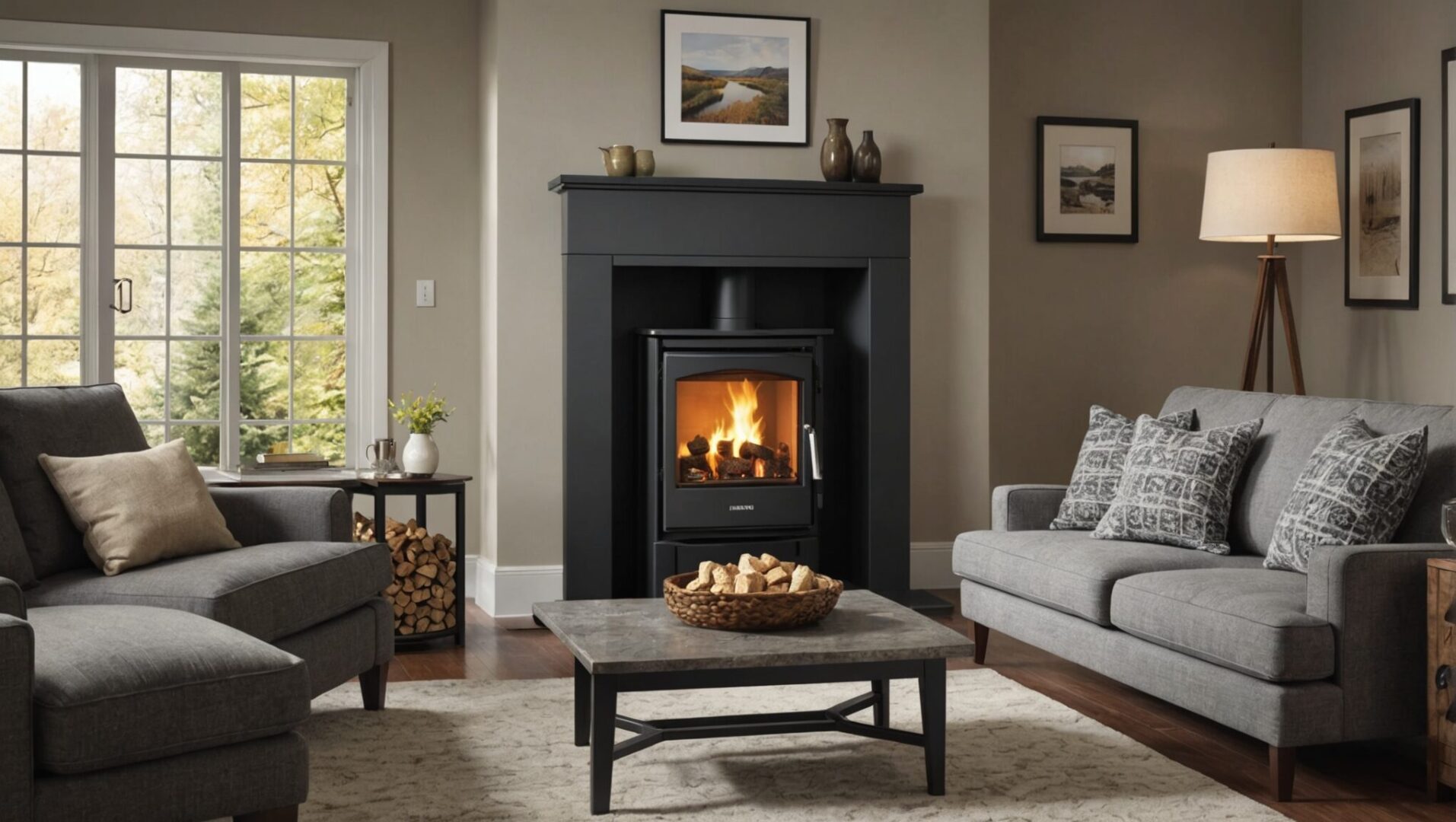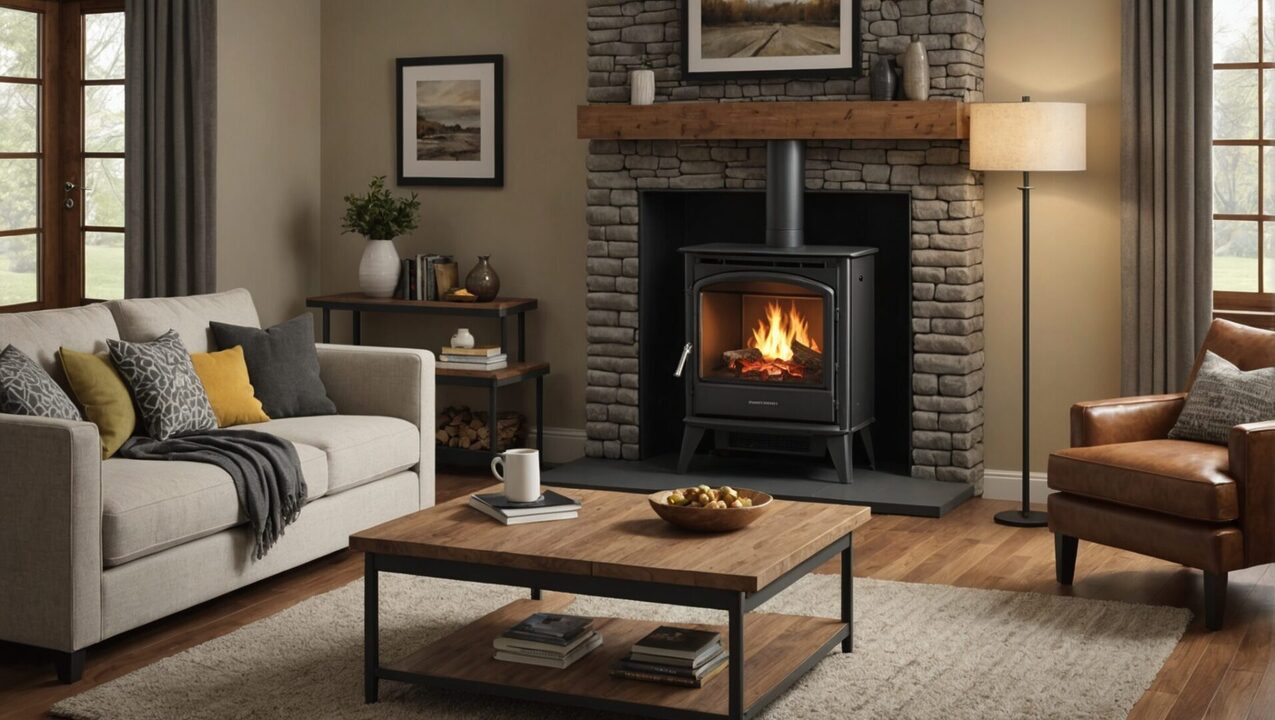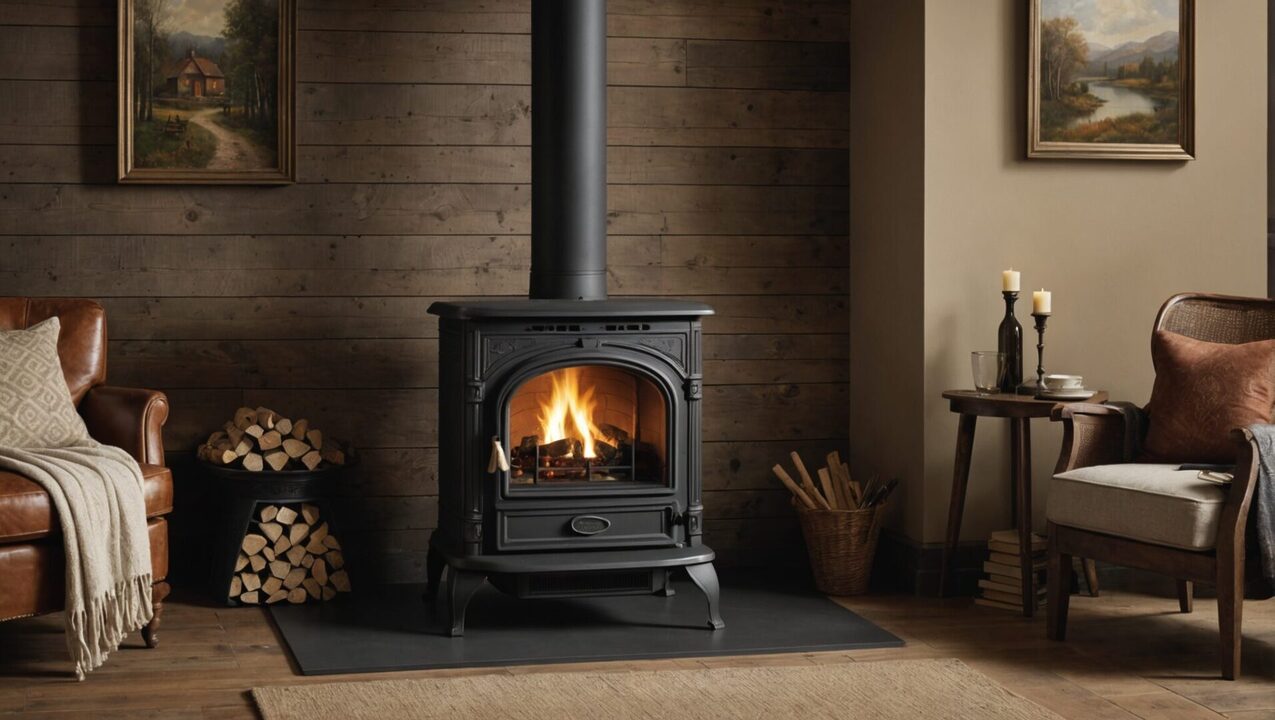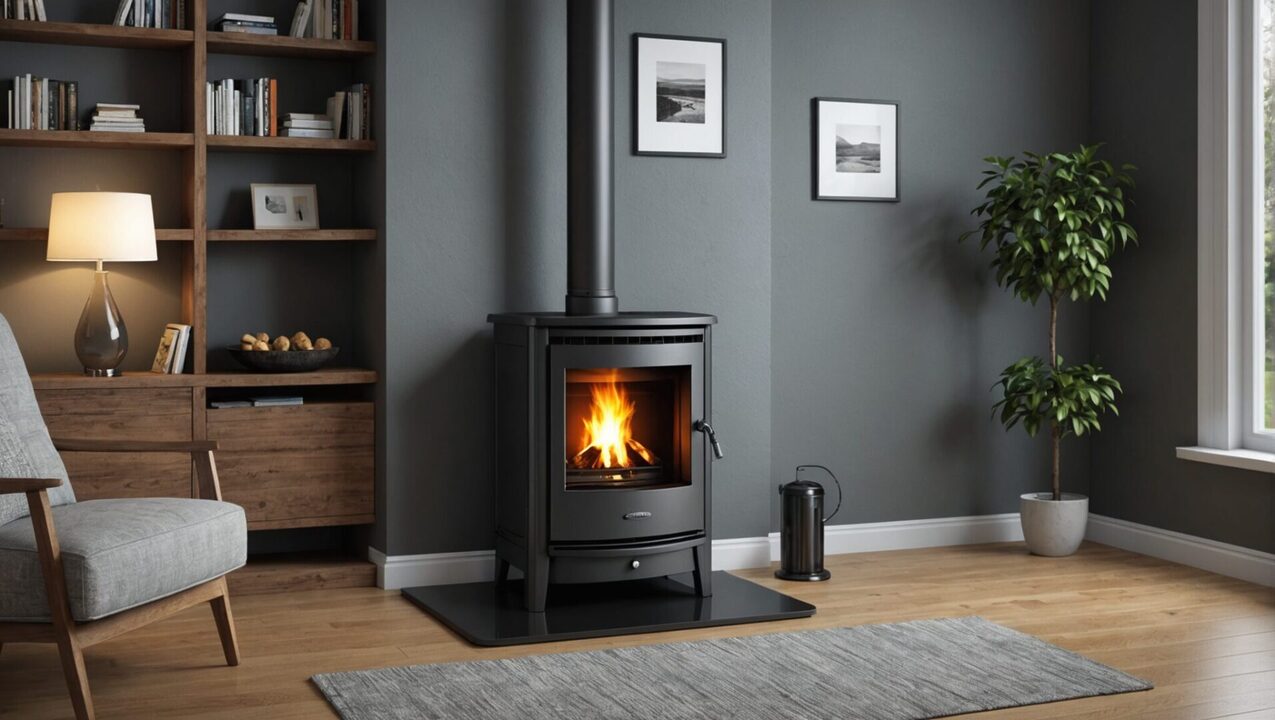THE convection pellet stove presents numerous profits which make it a preferred choice for heating. It stands out for its ability to deliver rapid rise in temperature, guaranteeing immediate and comfortable comfort. In addition, its operation without forced ventilation ensures a silence appreciable, avoiding the noise pollution common with other stove models. The heat is distributed in a way homogeneous in space, which allows gentle and continuous diffusion of heat. Finally, these devices are often considered economic And ecological, combining performance and respect for the environment.
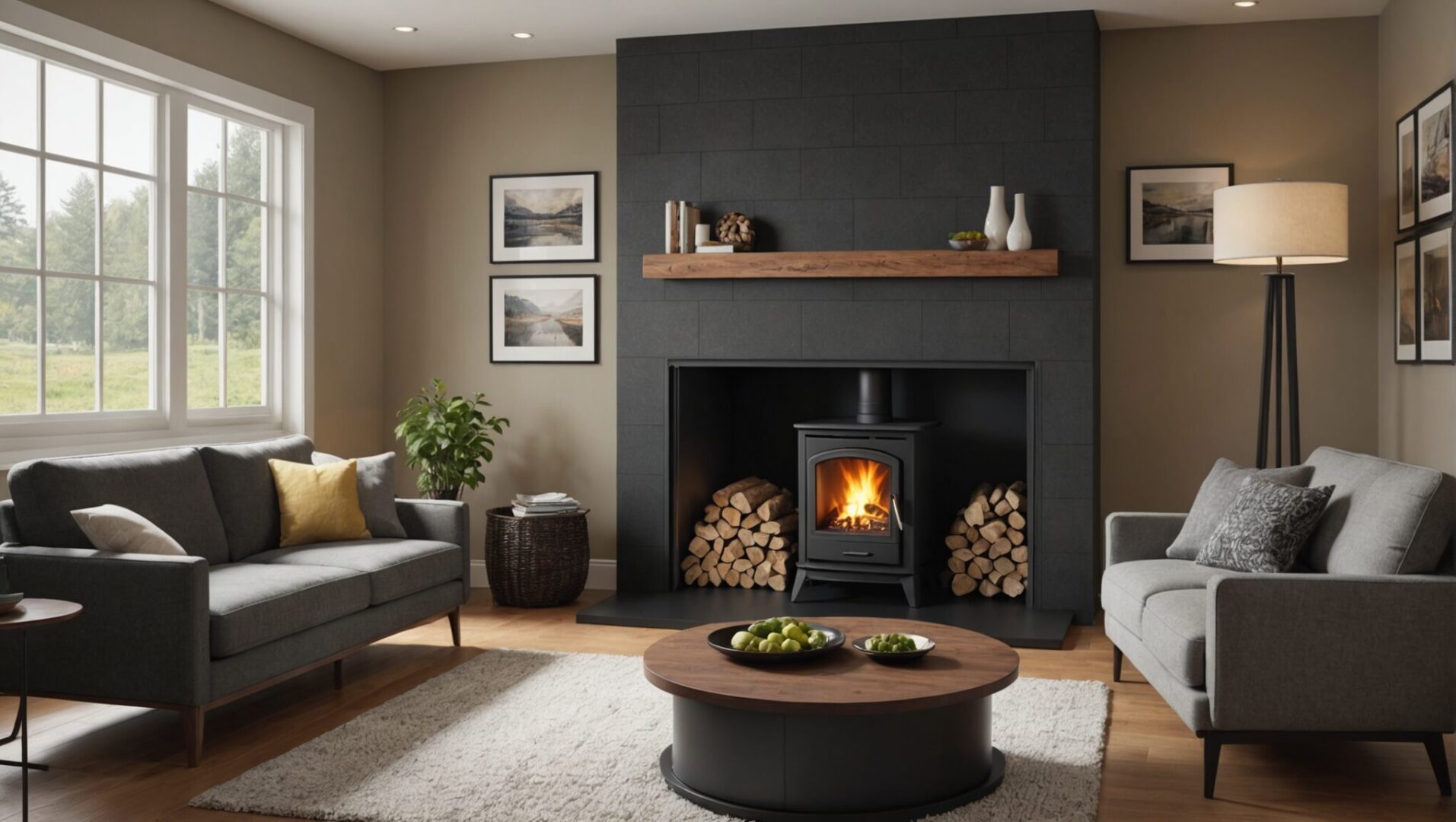
The search for efficient heating solutions is intensifying in many homes. With the rise of ecological technologies, the pellet stove convection heating system stands out as a serious alternative to traditional heating systems. This modern and efficient device deserves to be examined from all angles to truly appreciate the benefits it can bring.
Natural convection technology
At the heart of the functioning of pellet stoves, natural convection plays a preponderant role. This principle is based on the diffusion of heat through the ambient air, without any forced intervention. Thus, the heat spreads evenly throughout the room, providing optimal comfort.
How a natural convection pellet stove works
The mechanism of pellet stoves with natural convection relies on air outlets which propagate heat. As the air warms, it rises, allowing cooler air to enter the bottom of the stove, creating a constant air circulation cycle. This process ensures a more rapid and continuous rise in temperature than with a radiant stove.
The advantages linked to silent operation
Unlike forced convection stoves, which rely on noisy fans to circulate hot air, natural convection models offer quiet operation. This characteristic is appreciated in homes where calm is essential, such as in bedrooms or relaxation areas. Consequently, thermal comfort is reinforced without noise pollution.
Sur le même sujet :
Economical and ecological consumption
The capacity of pellet stoves to provide gentle and continuous heat is also at the forefront of their economic strengths. By using wood pellets, which constitute a renewable resource, these devices reduce CO2 emissions and meet strict environmental standards.
A renewable energy source
By opting for a pellet stove, we choose to reduce our carbon footprint. Pellets, made from recycled wood or industrial waste, contribute to a circular economy. The use of this type of fuel also reduces dependence on fossil fuels, thus promoting a more sustainable energy future.
Energy performance
Pellet stoves are renowned for their energy performance. Thanks to efficiencies often greater than 90%, this equipment results in significant savings on heating bills. The gentle and stable heat effect is particularly appreciated during the winter months, providing optimal comfort in living spaces.
Sur le même sujet :
Aesthetics and integration into the home
Another undeniable advantage of pellet stoves with natural convection lies in their ability to blend harmoniously into the interior of a house. Their contemporary design and varied finishes allow them to be easily integrated into different decoration styles.
Customization options
With a wide choice of materials and colors available, it is easy to tailor a pellet stove to its environment. Whether it is a steel, cast iron or ceramic model, the possibilities are diverse. In addition, the visibility of the flame brings a warm and welcoming dimension to the space, making the pellet stove a decorative element in its own right.
Impact on living space
Positioned in the center of the living room or in a corner, a pellet stove can become a focal point of a room. The gentle heat it diffuses ensures a friendly atmosphere, conducive to moments of sharing and relaxation.
Sur le même sujet :
Disadvantages to consider
Although the benefits of pellet stoves convection systems are multiple, it is also essential to take into account certain disadvantages. For example, the need to have sufficient space for pellet storage can sometimes be an obstacle. Without an adequate supply, you can quickly run out of fuel.
Initial investment cost
Another aspect to consider is the initial purchase cost, which may be higher than other traditional heating systems. Although this investment can pay for itself in the long term through savings on energy bills, it requires adequate financial planning.
Installation and maintenance of pellet stoves
The installation of a pellet stove requires technical expertise to ensure optimal and secure operation. In addition, regular maintenance is required to preserve the performance of the device. This involves cleaning the combustion system, as well as checking the condition of the exhaust pipes.
Call on professionals
It is strongly recommended to call on professionals for the installation and maintenance of your pellet stove. Their expertise ensures adequate commissioning and compliance with current safety standards. In addition, expert advice can be valuable to optimize the operation of the device.
Evaluate maintenance needs
Users should also be aware of the regular maintenance needs of the pellet stoves. Indeed, thorough cleaning is necessary to avoid blockages and ensure efficient combustion. This point, although time-consuming, is essential to ensure maximum performance in the long term.
Comparison with other heating systems
It is relevant to compare the pellet stoves natural convection with other heating systems, such as oil boilers or electric heaters. A key aspect remains energy performance, often superior in pellet stoves. The latter stand out for their long-term profitability.
Oil boilers and their performance differences
Oil boilers, while efficient, do not offer the same flexibility when it comes to fuel supply. In addition, their energy expenditure is not always offset by savings on fuel bills, especially with fluctuating fuel prices.
Electric heaters and thermal efficiency
When it comes to electric heaters, the cost of using them can quickly add up, especially during peak periods. In addition, pellet stoves, thanks to their storage capacity, allow significant autonomy, unlike electrical devices which require constant power supply.
Open conclusion on the ecological heating debate
The choice of a pellet stove with natural convection is part of a responsible and sustainable approach. Thanks to its numerous advantages in terms of economy, comfort and aesthetics, it represents an interesting heating alternative. Nonetheless, it is crucial to weigh the potential downsides, especially regarding initial investment and storage space. What is your feedback on pellet stoves? Have you encountered any particular challenges with this type of heating? Share your thoughts and join the debate in the comments below!
